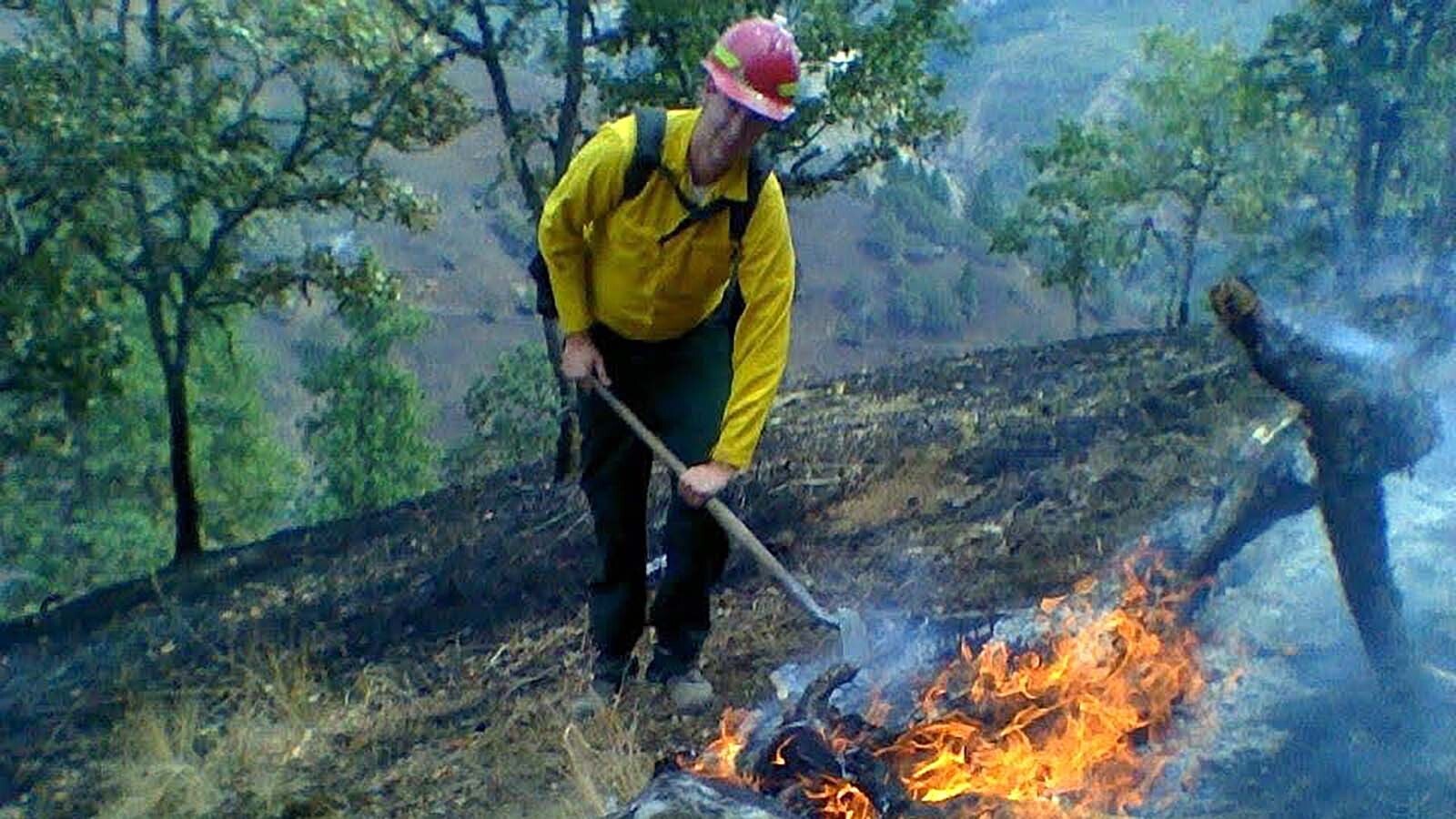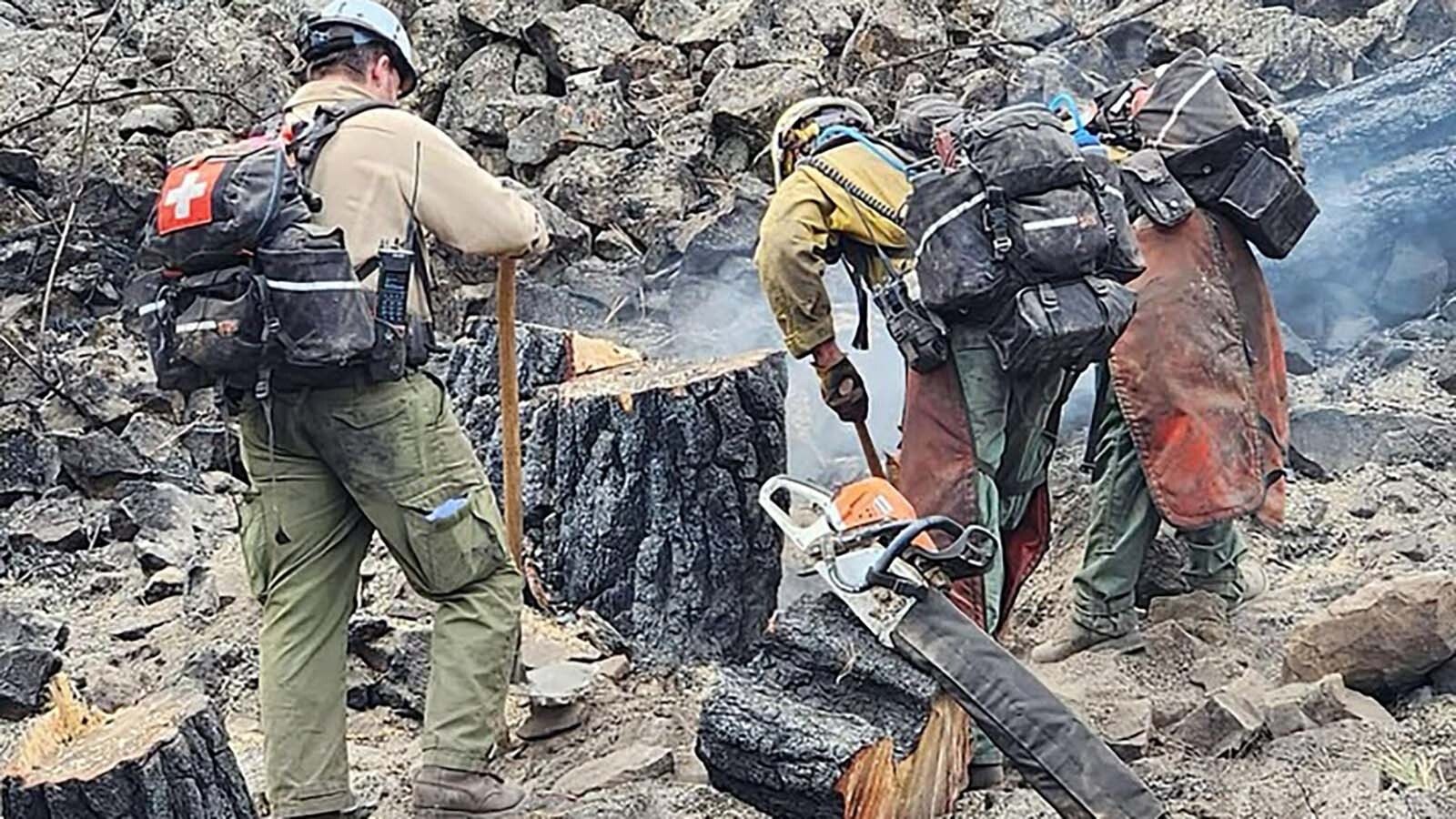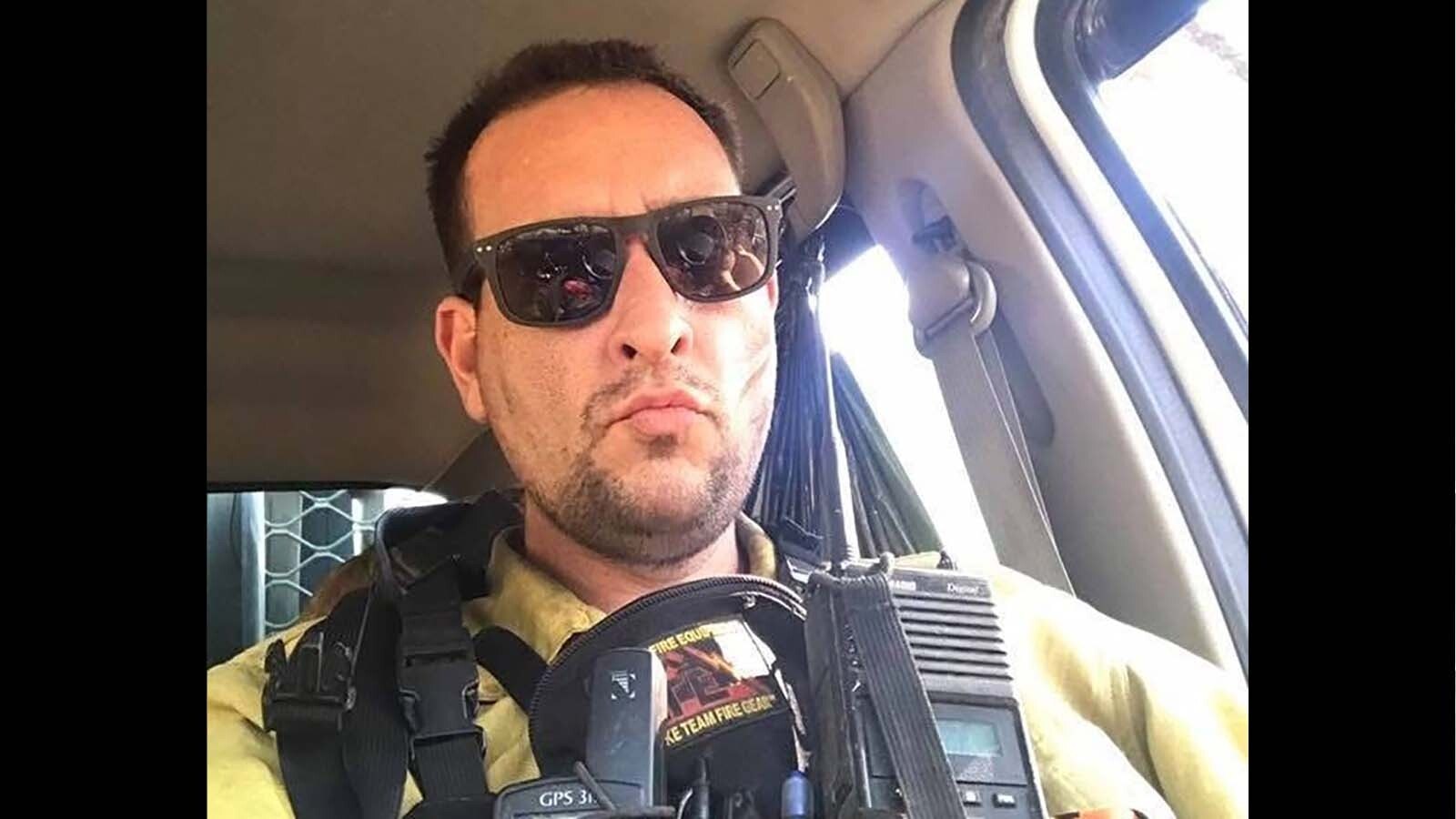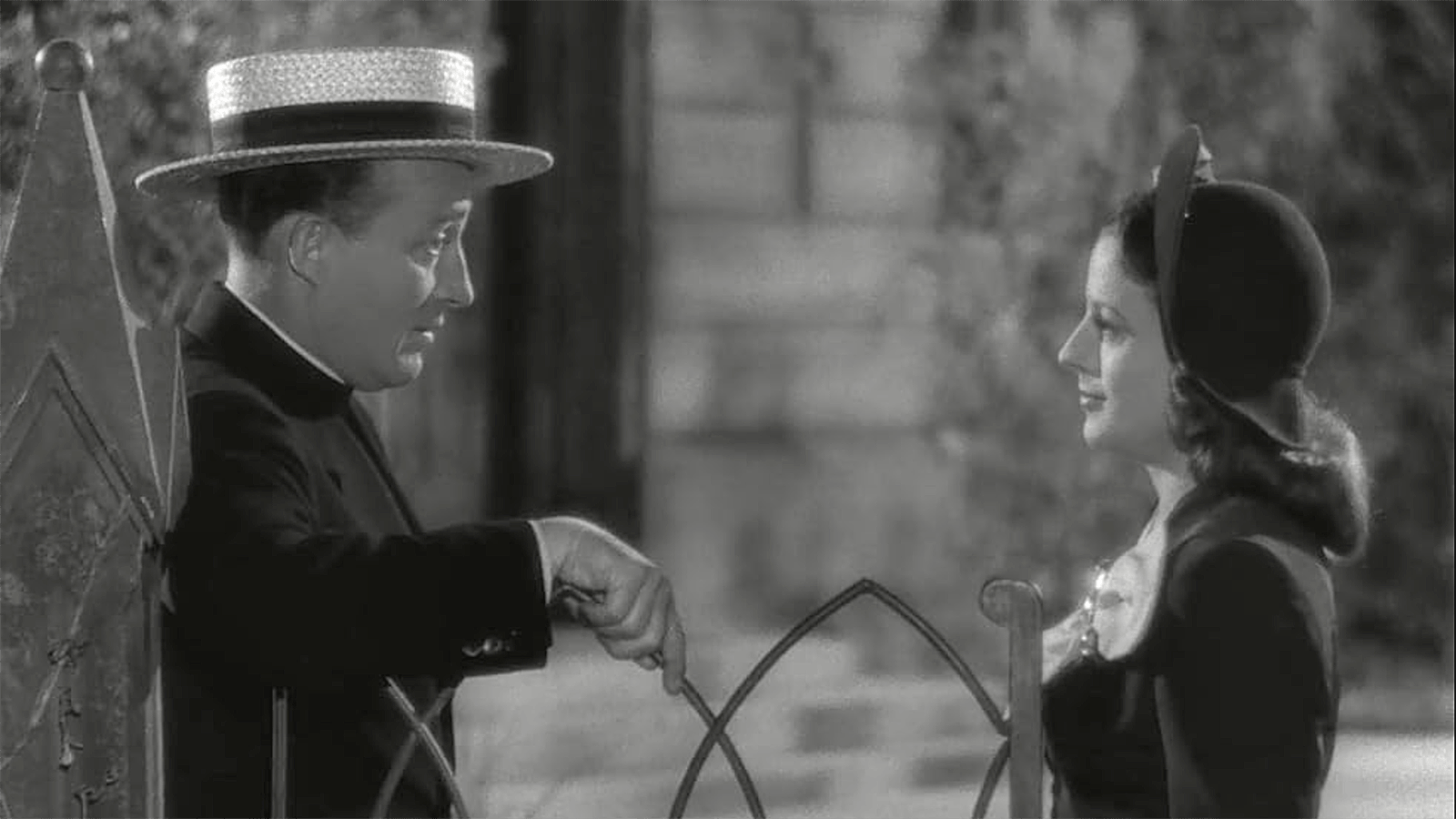For nearly two decades, Darren Clifford fought wildland fires on the front lines, enveloped by smoke, heat and flames as he used shovels to build fire lines.
He loved his job and adrenaline he got from fighting the dangerous and unpredictable blazes — and the knowledge that he was helping those in the path of the flames. He was protecting homes, livelihoods and lives.
“It's not a job that is for everyone,” Clifford told Cowboy State Daily. “I'm a big outdoors person and love being in nature and being able to help protect our landscape and people's livelihoods.”
However, his career fighting these fires has come to an end after years of battling wildfires fought back.
Now 42 and living in Lander, Wyoming, Clifford needs a lung transplant.
He has COPD and was medically discharged from the job he loved — the same job that compromised his health.
“You eat a lot of smoke,” Clifford said. “But we never talked about the toxins when you get into wildfires.”
He said he battled the flames, working on hand crews and doing mop up in heavy smoke conditions for 14 days straight at a time, without ever wearing a mask.
Looking back at those years, he regrets that he was not better protected.
“I really wish there was some type of mask or respiratory things that we could wear to help protect us, but there's really not,” Clifford said.
He does not, however, regret his time fighting wildfires, only that he did not wear a mask when the poisonous smoke engulfed him and his team.
“The problem with that is that when you're out on a wildfire, you could be 10 or 12 miles away from your apparatus and you run out of oxygen. You're SOL,” Clifford said. “Not to mention the extra weight. Those things weigh 50 to 60 pounds.”
Clifford said that the concern of using these masks is that they can overheat firefighters. They could also slow them down by 20% to 30% and puts other firefighters on the line at risk.
Despite these dangers and his own health issues, he misses the action.
“I just fell in love with it,” Clifford said. “It was like no job that I've ever had before. It's super hard job on your body, on your mind. It takes a special person to do it.”
He said that is one of the reasons there are only about 25,000 certified wildland firefighters in the United States.
Now he’s channeled that passion for fighting wildfires into keeping people informed about wildfires.
His “Caught The Fire Bug” Facebook page has more than 200,000 followers who go to Clifford for the most accurate and up-to-date information available about large wildfires in Wyoming and across the West.
His unique experience as a firefighter gives Clifford not only an expert’s knowledge of how these fires are fought, but how. He also has contacts on the ground who can give or confirm information, along with knowing how to navigate what can be a confusing online maze of official reporting agencies.

Catching The Fire Bug
Clifford’s first season fighting wildland fires was in 2008 in Oregon. He began as a structure firefighter, but had quickly discovered that instead of fires, most of the calls were medical emergencies.
“I wanted to be a firefighter,” Clifford said. “But structure firefighting was 90% medical, 10% fire.”
Clifford’s first call was a response to the drowning of a 6-year-old boy. That scarred him.
“Seeing multiple fatalities, car accidents — I just didn't want to do it anymore,” Clifford said.
He was hanging out in a bar in Portland, playing poker when he met his first wildland firefighter and learned about a career with the U.S. Forest Service.
“He was a hotshot out of Zigzag,” Clifford said. “He told me that you should come over to the real side.”
Clifford started working on a hand crew for the next two years and then spent more than 10 seasons on an engine crew out of Spokane, Washington.
His first assignment was on a 20-person hand crew in Northern California fighting the huge Paradise Fire.
“That fire was six months long,” he said. “That was the first season I caught the fire bug. I fell in love with it.”
Off The Front Lines
Clifford said that he is among an alarming number of wildland firefighters who have been medically discharged and now suffer severe issues from exposure to toxins in the smoke.
He hopes that a solution can be found to help those still fighting fires and keep them on the job longer than he was able to stay.
“The Forest Service really needs to figure something out, because I'm 42 years old and I need a lung transplant in the next five to 10 years,” Clifford said. “Firefighters in their 20s and 30s are dying from this.”
Clifford emphasizes that even if he had known the full danger to his health, he still would have done it.
“I'm helping out the community,” he said. “And the community is what's most important along the lines of a firefighting.”

A New Path To Fighting Fires
Unable to fight fires in person, Clifford turned to his computer. In 2023, he started Caught The Fire Bug, which is growing into a full-time business.
“We do wildfire reporting, educate the community about wildfire dangers, and we tell the firefighter stories,” Clifford said.
His page’s goal, Clifford said, is to tell the unheard stories about fighting fires and to educate people about the realities and dangers of wildland fires.
He posts photos and videos collected from his own team of reporters and submitted by his followers. He also publishes stats and updates from government agencies reporting on wildland fires.
According to a recent post Clifford shared from the National Interagency Fire Center, as of Friday, there were nearly 45,000 wildfires that have burned close to 4 million acres across the United States this year.
While lightning ignited about 4,500 wildfires, including those in Wyoming, more than 40,000 of these wildfires were started by people — and preventable.
The agency reports that 16,559 wildland firefighters and support personnel are on assignment, including 17 complex incident management teams, 316 crews, 795 engines and 111 helicopters. One of those complex teams is on the 125,000-acre Red Canyon Fire about 11 miles east of Thermopolis.
Additional support includes four Modular Airborne Firefighting System airtankers and two U.S. Army HH-60 MEDEVAC helicopters.
Current fuels and fire behavior advisories cover parts of Nevada, California, Utah, Arizona, Colorado, and Wyoming.

Operation Firebug
Clifford has a goal to go around to all the wildfire teams, hotshots, smoke jumpers, SEATs (single engine air tankers), pilots, and others working these wildland fires to share their perspective.
“I just want to tell their stories, because a lot of the community don't understand what it takes to fight these fires,” Clifford said. “There's a reason we do what we do.”
He said that he recently had 13,000 comments on a video and the majority was negative, complaining that the firefighters were taking footage, but not fighting the fire.
“There's reasons why we don't go in and attack the fire, especially with fires like the Red Canyon fire, which is making its own weather, making its own clouds,” he said.
The Red Canyon fire in Hot Springs County has been blowing in every direction from the shifting winds and have even created dangerous smoke funnels, causing additional danger to the firefighters who must stay alert to these changes. He said it is during that time, the firefighters must step back and observe so they stay as safe as possible.
Clifford is also taking Caught The Fire Bug beyond just posting photos and videos of the fire. He wants to help people become better prepared for future fires.
“I'm working on writing up fuel management plans for people that want to hire me to come out and walk their property and help them put in fire breaks and vegetation and construction items that will help reduce fire,” he said.
In the meantime, as the fire season continues to blaze a path across Wyoming and other states, Operation Firebug will be there recording the destruction and supporting the firefighters putting their lives in the path of danger.
Jackie Dorothy can be reached at jackie@cowboystatedaily.com.





